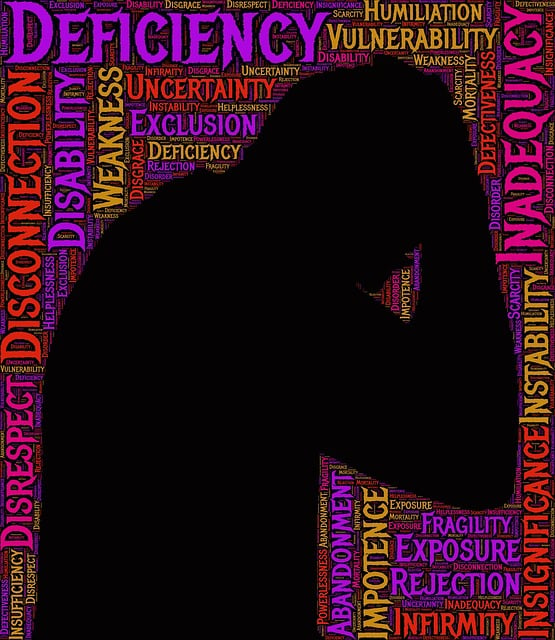Evaluating Denver Men's Issues Therapy (DMIT) involves a combined quantitative and qualitative approach using surveys and assessments to track mental health improvements, emotional well-being, and self-care adoption. These tools measure participant experiences, program satisfaction, and coping mechanism advancements, providing insights into DMIT's success in fostering empathy and personal growth. The data is vital for refining the program and ensuring it meets the evolving needs of male clients seeking support in Denver.
Evaluating mental wellness programs is crucial for ensuring their effectiveness and impact. This article explores comprehensive assessment methods used in Denver Men’s Issues Therapy, highlighting quantitative and qualitative techniques. We delve into standardized surveys tailored to men’s specific challenges, participant feedback through semi-structured interviews and focus groups, and long-term tracking of mental health improvements. By combining these evaluation strategies, the program aims to enhance outcomes and sustainability, offering a robust framework for success in addressing men’s unique therapeutic needs.
- Assessing Program Impact: Metrics and Surveys for Denver Men's Issues Therapy
- – Overview of quantitative and qualitative evaluation methods
- – Standardized surveys and their application in mental health programs
Assessing Program Impact: Metrics and Surveys for Denver Men's Issues Therapy

Assessing the impact of a mental wellness program like Denver Men’s Issues Therapy (DMIT) is crucial to understanding its effectiveness. This evaluation process involves a comprehensive blend of quantitative and qualitative metrics, including surveys designed to capture participant experiences and outcomes. DMIT employs these tools to measure changes in clients’ mental health, emotional well-being, and adoption of positive self-care practices, such as those guided by Mind Over Matter principles.
Surveys play a significant role in this evaluation, gathering feedback on various aspects like the overall program satisfaction, perceived benefits of the therapy sessions, and improvements in coping mechanisms. The data collected provides insights into DMIT’s success in fostering empathy building strategies among participants, which is essential for promoting healthy relationships and personal growth. These surveys are instrumental in refining the program and ensuring that it continues to meet the evolving needs of its clientele.
– Overview of quantitative and qualitative evaluation methods

Evaluating mental wellness programs is a multifaceted process that combines both quantitative and qualitative methods. Quantitative evaluation relies on numerical data and statistical analysis to gauge program effectiveness. This includes metrics like participant satisfaction scores, reduction in symptom severity, and improvement in quality of life measures. These data points provide concrete evidence of the program’s impact, making them valuable for tracking progress and allocating resources effectively, especially in settings like Denver Men’s Issues Therapy centers.
Qualitative evaluation, on the other hand, delves deeper into participants’ experiences, perceptions, and emotional healing processes through methods such as interviews, focus groups, and surveys with open-ended questions. This approach captures nuanced insights into the inner strength development and personal growth that may not be evident in quantitative data alone. Integrating both qualitative and quantitative methods offers a comprehensive Risk Assessment for Mental Health Professionals, ensuring that program evaluations are robust, informed, and aligned with the emotional well-being of individuals seeking support.
– Standardized surveys and their application in mental health programs

Standardized surveys play a pivotal role in evaluating mental wellness programs, especially those catering to male individuals, such as Denver Men’s Issues Therapy. These surveys are designed to assess various aspects of mental health and well-being through structured questions, ensuring consistent data collection across different settings. By employing standardized tools, therapists and researchers can gain valuable insights into the effectiveness of interventions. For instance, measures like the Beck Depression Inventory (BDI) aid in quantifying symptoms of depression, while scales focusing on self-awareness exercises can evaluate an individual’s capacity for introspection and personal growth.
Moreover, incorporating assessments that explore compassion cultivation practices or depression prevention strategies within these surveys offers a holistic view of program impact. These methods not only help identify areas of improvement but also foster continuous quality enhancement in mental health services, catering specifically to the unique needs of male clients engaging in Denver Men’s Issues Therapy.
Evaluating the impact of mental wellness programs, such as the Denver Men’s Issues Therapy, is essential for understanding their effectiveness. By combining quantitative metrics with qualitative surveys, we can gain a comprehensive view of participant experiences and outcomes. Standardized surveys play a crucial role in this process, providing consistent data collection methods that allow for meaningful comparisons and informed decision-making to enhance the program’s continuous improvement.














